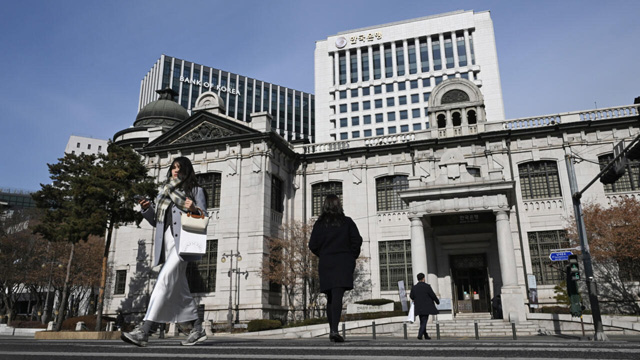News Flash

SEOUL, April 17, 2025 (BSS/AFP) - South Korea's central bank chief said Thursday that annual growth is expected to fall short of a recent forecast due to sweeping US tariffs and the fallout from the ex-president's martial law declaration.
US President Donald Trump's threatened 25 percent "reciprocal" tariffs on the export-dependent South Korea have rattled Asia's fourth-largest economy, sending Seoul-listed shares tumbling and pushing the currency to its weakest level since 2009.
The country has also seen months of political chaos, triggered by former president Yoon Suk Yeol's December attempt to suspend civilian rule, which culminated in his removal from office and new elections announced for June 3.
"This year's annual growth rate is now expected to fall short of the 1.5 percent forecast made in February," said Bank of Korea (BOK) Governor Rhee Chang-yong.
"The tightening of tariff policies, which is much stronger than initially projected, will likely further weigh on growth prospects," Rhee told reporters in a press conference.
He added that "political uncertainty has dragged on longer than expected, delaying the recovery of economic sentiment."
Sluggish domestic demand, along with unprecedented factors such as large-scale wildfires which tore through swaths of the country's southeast late March, had also contributed to the downturn, Rhee said.
The BOK held its interest rate steady at 2.75 percent on Thursday, its third straight decision to keep rates unchanged after a 0.25 percentage point cut in February.
Given the "significant uncertainty" due to US tariffs and the government's push for economic stimulus, "the board judged it appropriate to keep the base rate unchanged for now while closely assessing changes in domestic and external conditions".
Rhee said the decision was driven by tariff-related "uncertainty" going forward, which has grown to an "unprecedented level".
"The intensity of US tariff policies and the swift shifts in responses from major economies are evolving so rapidly that it is currently difficult to even establish a baseline scenario for forecasts," he said.
"It feels as though we've suddenly entered a dark tunnel," he added.
"In such dim conditions, the approach is to... wait patiently until the light returns."
At the same time, he also hinted that the board is considering additional cuts in May, but is "closely reviewing both domestic and external economic conditions".
South Korea's finance ministry said Wednesday that finance minister Choi Sang-mok will meet his US counterpart, Scott Bessent, to discuss trade issues next week.